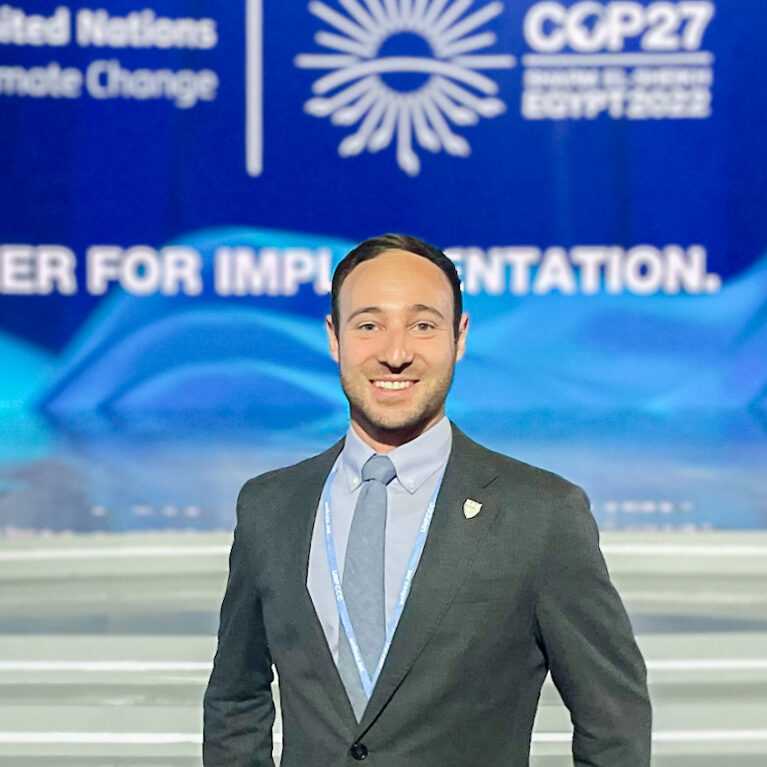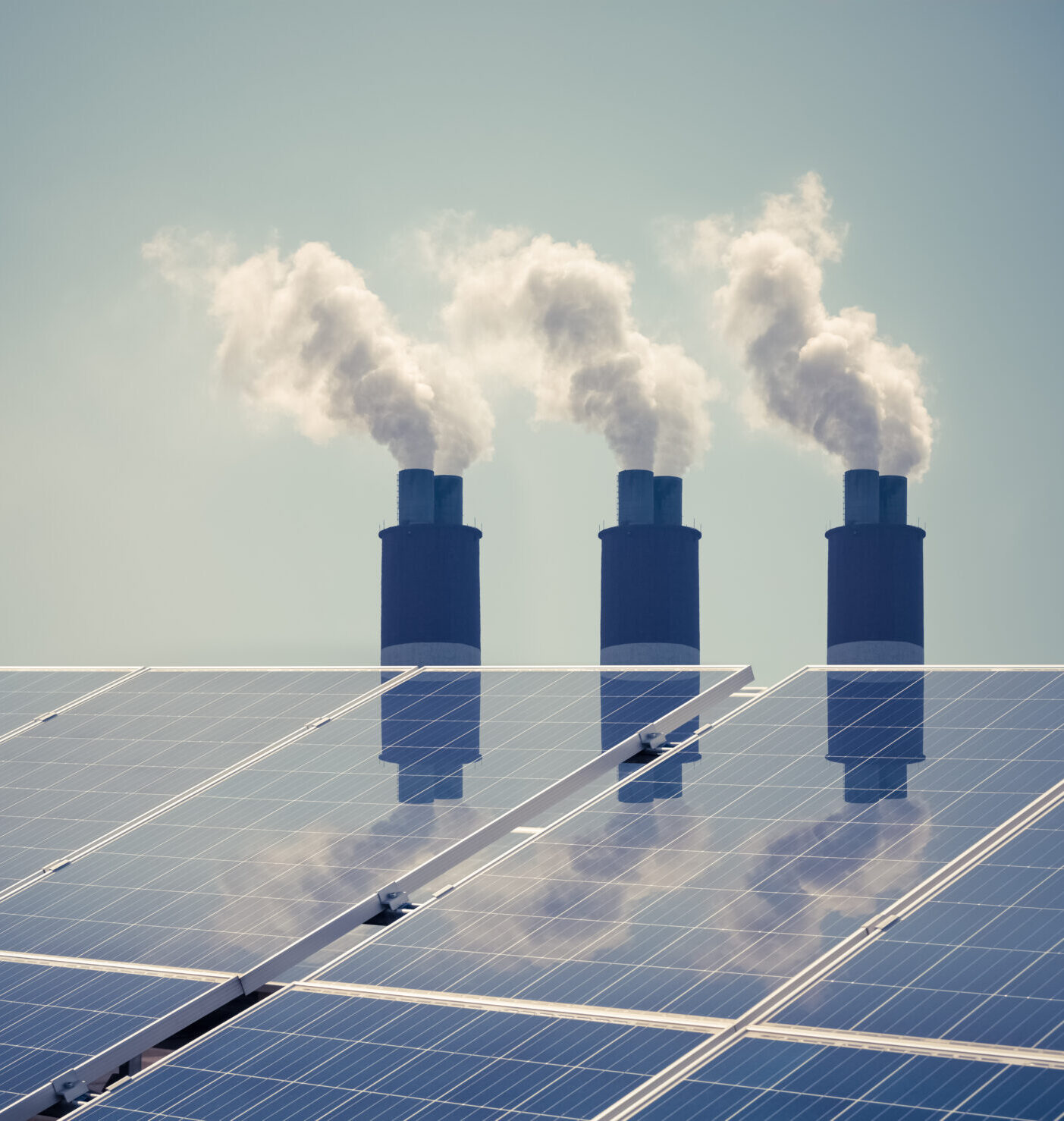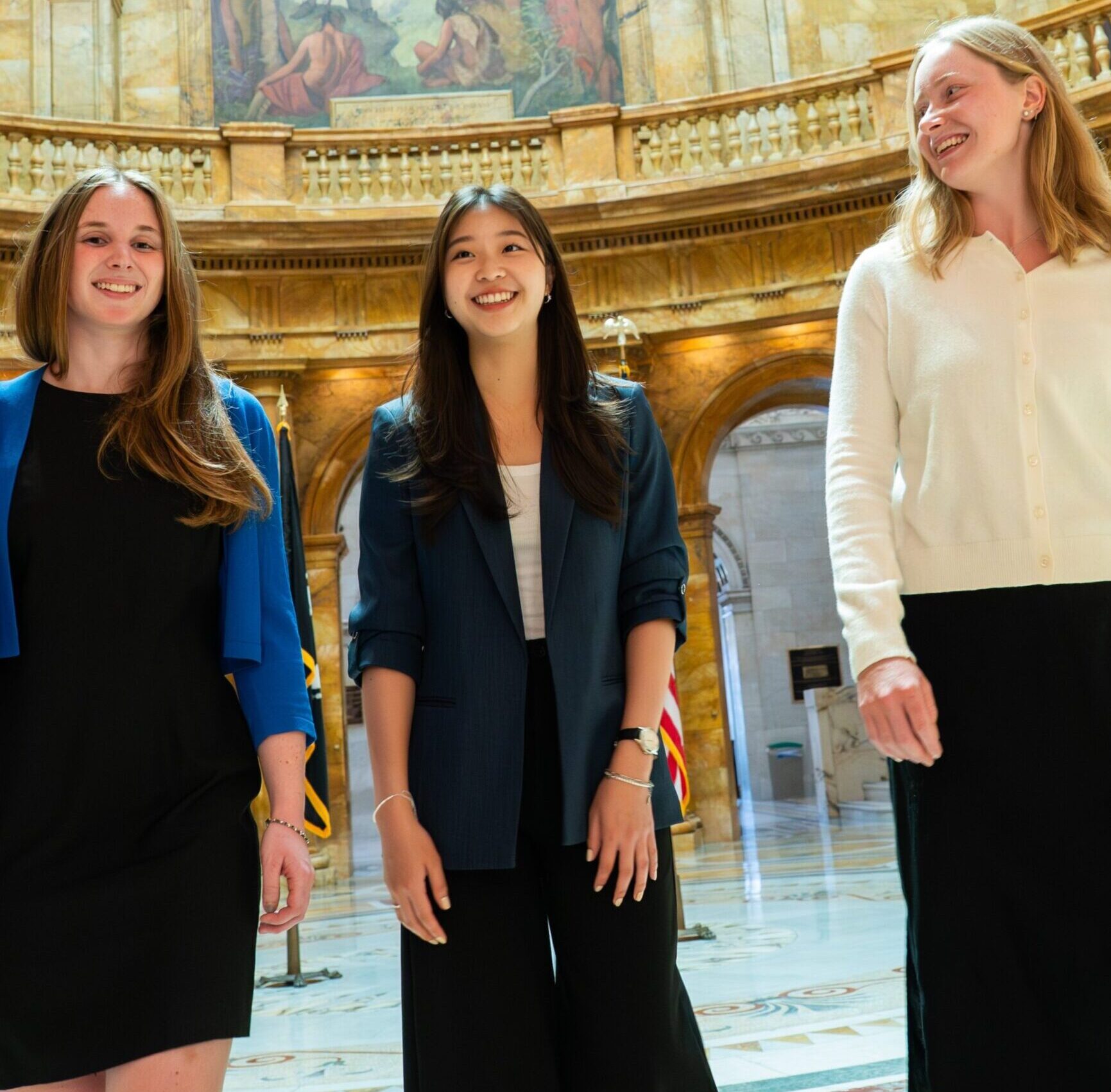
Gray Bender
Reflecting on COP27
By: Gray Bender
“We have the collective capacity to transform…. To make a definable difference in the lives of the people who we have a responsibility to serve.” Those were the words I heard from Barbados Prime Minister Mia Mottley as I sat in person for her powerful speech opening this year’s COP27 World Leaders Summit. As a graduate student at the Harvard Kennedy School, those words rang true as our world continues to struggle to make progress in addressing global climate change.
This November, I had the opportunity to attend my first Conference of the Parties (COP) climate event hosted this year in Sharm El-Sheikh, Egypt. My official role was as a delegate of the United Nations Economic Commission for Europe (UNECE), with support from the Salata Institute, The Belfer Center, and several Harvard faculty members. My time entailed supporting the UNECE Executive Secretary and the Director of the Sustainable Energy Team (for which I worked this past summer) across a range of events and bilateral engagements. Around this work, I also had the invaluable opportunity to sit in on panels of all sorts, connect with contacts new and old, and to explore the wide diversity of ideas and perspectives being shared by people from around the world.
Four key themes stood out to me most prominently at this 27th COP: First, the growing chorus of diverse voices calling for an equitable and just transition; one that includes the voices of not only those in power, but of all those who bear the highest brunt of climate impacts while often being left out of the conversation. Emerging economies are less able to absorb the devastating shocks of more frequent and more extreme natural disasters, so hearing the stories of these most affected people and engaging them in the search for solutions is critical. Second, the need to repair the fragmenting relationships between the Global North and the Global South. One big point of discussion was equitable access to financing, with Prime Minister Mottley pointing out the vast difference in borrowing rates of 1-4% for the developed world and closer to 14% for developing countries. Leveling the playing field and making concessionary financing available is a key part of enabling a global transition and supporting developing and emerging economies to grow most sustainably. Third, greenwashing and corporate claims of “net zero” speak to the need for greater accountability. The UN’s recent report on net zero emissions commitments, “Integrity Matters,” underscored this need. And finally, the changing landscape for energy a transition because of Russia’s invasion of Ukraine and the ensuing global energy crisis.
As we look to the future and the outcomes of COP27, it can be difficult to see how progress could be made. With coal generation making a resurgence, natural gas infrastructure being built at break-neck speeds, and oil majors making windfall profits, on the surface it could seems that we are stuck in our fossil fuel era. While it is true that globally we are far behind where we should be in mitigating climate change, it would be wrong to discount the progress that has been made. This year the United States passed the largest climate spending legislation in history, all told unlocking over $500 billion in sustainability-related funding. Clean energy technologies are more affordable and accessible than ever, beating fossil fuels not just on environmental impact but in market economics too. And hearing about the countless initiatives and meaningful progress being made by governments, private sector actors, communities, and all others at COP27, I’m heartened by the efforts being made.
While UN Secretary General António Guterres opened the conference by describing the world “on a highway to climate hell with our foot still on the accelerator,” progress is being made. With climate change, every fraction of a degree matters, and thus every ton of carbon saved represents progress. There is no end goal of winning or losing, but rather a range of possible futures. This COP reminded me that we are moving forward, and that it is time again to reinvigorate the push for our clean energy future.
Gray Bender is a candidate for a Master’s in Public Policy at Harvard Kennedy School with a concentration in business & government policy.
The Salata Institute
The Salata Institute supports interdisciplinary research that leads to real-world action, including high-risk/high-reward projects by researchers already working in the climate area and new endeavors that make it easier for Harvard scholars, who have not worked on climate problems, to do so. Faculty interested in the Climate Research Clusters program should note an upcoming deadline for concepts on April 1, 2024.









